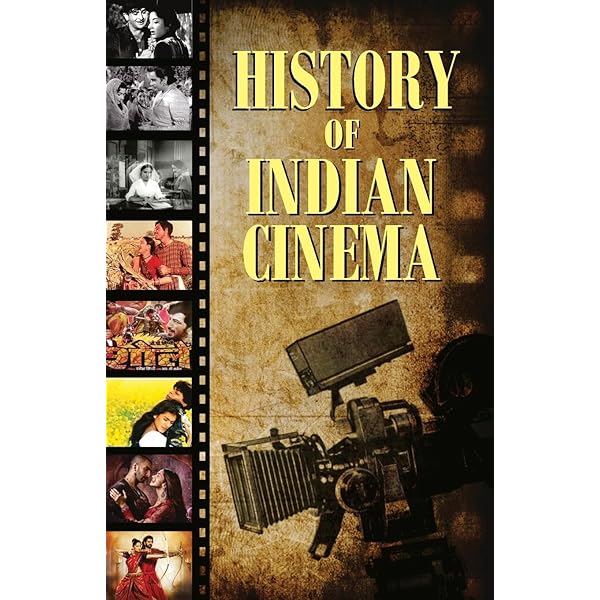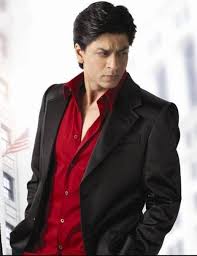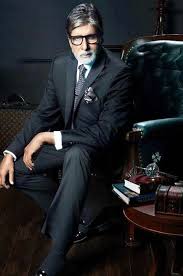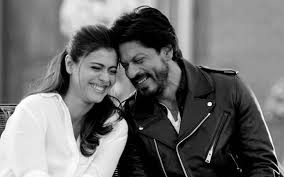The Role of Cinema in Social Awareness

Undoubtedly, social awareness in Indian cinema has always been a powerful medium for storytelling, entertainment, and social commentary. Over time, it has played a important role in raising awareness by addressing various issues affecting the society. The birth of Indian cinema was generally in 1913, with the release of Raja Harishchandra, which was the first feature film made in India. Directed and produced by Dadasaheb Phalke, it was a silent film based on the mythological story of the legendary King Harishchandra. Dadasaheb Phalke was the Father of Indian Cinema who brought film in India. Then the sound Era film started in 1931 by Alam Ara.
Indian Cinema being just an entertainment industry, cinema is a mirror that reflects society’s realities, aspirations, and challenges. Indian filmmakers have used the medium to shed light on issues that often remain unnoticed or are considered taboo. With the rise of realistic cinema and independent filmmaking, directors have been able to break away from conventional storytelling and experiment with narratives that focus on social themes.
One of the earliest instances of socially relevant cinema in India can be traced back to films like Do Bigha Zamin (1953) and Mother India (1957), which depicted the struggles of the poor and the agrarian crisis. As time progressed, moreover, Indian cinema continued to evolve. Gradually, filmmakers began to tackle more complex and layered subjects, including corruption, communal harmony, and women’s empowerment.
Awareness of Women’s Empowerment in Indian Cinema
The portrayal of women in Indian cinema has seen a significant shift over the years. In the past, women were often depicted as damsels in distress or confined to stereotypical roles. However, modern Indian cinema has broken these barriers and given rise to strong female protagonists who challenge societal norms.
Films like Kahaani (2012), Queen (2014), and Pink (2016) have been instrumental in changing perceptions about women and their role in society. Notably, Pink, in particular, sparked a nationwide debate on consent and women’s safety, reinforcing the idea that “no means no.” Furthermore ,Such films not only entertain but also educate audiences on gender equality and women’s rights.
Caste Discrimination and Social Inequality in Cinema
Caste discrimination is one of the most deep-rooted issues in Indian society. Cinema has played a vital role in bringing this issue to the forefront. Movies like Sujata (1959) and Ankur (1974) addressed caste-based prejudices, highlighting the oppression faced by marginalized communities.
In recent times, Article 15 (2019) directed by Anubhav Sinha, showcased the harsh realities of caste-based discrimination. The film, inspired by true events, follows a police officer’s investigation into caste atrocities in rural India.
Mental Health Awareness in Indian Cinema
A film like Taare Zameen Par sensitively depicted the struggles of a dyslexic child, bringing attention to the importance of understanding learning disabilities. And a film, Dear Zindagi explored the significance of therapy and emotional well-being.
Environmental Issues and Sustainable Living towards awareness
Environmental concerns, Indian cinema has also taken up the responsibility of spreading awareness about sustainability and conservation. Movies like Kadvi Hawa (2017) and Jal (2013) address climate change, drought, and water scarcity, Swades (2004), focuses on rural development and the need for self-sufficiency. The film inspired many young individuals to contribute to the development of their villages, and bringing about sustainable change.
Corruption and Political Awareness
Corruption has been a persistent issue in India, andimpact on society. Films like A Wednesday! (2008) and Rang De Basanti (2006) highlight the frustration of common citizens against the inefficiencies of the system. Rang De Basanti, i impact on Indian youth, encouraging them to take an active interest in politics and governance. The film’s message about youth-driven change resonated across generations, inspiring social movements and activism.
Social Awareness in Shah Rukh Khan’s Films

Here comes A Shah Rukh Khan, known as King Khan, a Megastar. A boy from Delhi came to Mumbai to fulfill his dream in Indian cinema. He has played a significant role in many films which have contributed to social awareness. His films have had a profound impact on changing perceptions and addressing social issues. In addition to his cinematic contributions, his wife, Gauri Khan, is a renowned interior designer and film producer. Together, they have three children: Aryan, Suhana, and AbRam. Despite being a global superstar, he is known for remaining grounded, witty, and deeply committed to his family. Furthermore, his NGO, the Meer Foundation, focuses on women’s empowerment and supporting acid attack survivors, as well as providing healthcare and education for underprivileged children. Beyond philanthropy, he is also a successful entrepreneur—co-owner of the IPL team Kolkata Knight Riders and owner of the film production company Red Chillies Entertainment. Additionally, he is associated with various brand endorsements across industries.
The most iconic and loved dialogues from the film Om Shanti Om (2007) is:
“They say that if you truly desire something from the heart, then the whole universe conspires to help you achieve it.”
Impact of shah Rukh Khan Movies towards social awareness like:
Swedes (2004) is one of the most striking examples, reflecting the need for rural development and self -sufficiency. The film inspired many youngsters to return to their roots and contribute to the betterment of society.
Chak De! India (2007) brought attention to gender discrimination in sports and the significance of national unity. By doing so, the film portrayed a male coach guiding a women’s hockey team to victory despite societal biases, thereby sending a powerful message about breaking stereotypes and promoting equal opportunities for women in sports.
In My Name is Khan (2010), Shah Rukh Khan took on the role of a character suffering from Asperger’s syndrome, navigating a world filled with Islamophobia and prejudice. Moreover, the film underscored the importance of religious harmony and the need to judge people based on their character rather than their background. It played a crucial role in addressing discrimination faced by Muslims globally.
Ra.One (2011) subtly raised concerns about artificial intelligence and responsible parenting in the digital era. Consequently, Zero (2018) tackled perceptions around physical disabilities, thereby promoting inclusivity and self-acceptance.. These films encouraged audiences to rethink societal attitudes towards people with disabilities and embrace diversity.
Social Awareness in Amitabh Bachchan’s Films

Similarly, Amitabh Bachchan, a Legend of Indian cinema, known as “Angry Young Man”. whose voice that rumbles like thunder and a screen presence that commands awe. Mr. Bachchan was born on October 11, 1942, in Allahabad, Uttar Pradesh, India, a son of renowned Hindi poet Harivansh Rai Bachchan and social activist Teji Bachchan. He wanted to become a radio announcer, but he was rejected from All India Radio due to his deep voice—which ironically later became his signature style. He debuted in Hindi cinema with “Saat Hindustani” (1969) but rose to fame with “Zanjeer” (1973), which established him as Bollywood’s “Angry Young Man.” Amitabh married actress Jaya Bhaduri in 1973. They have two children: Shweta Bachchan and Abhishek Bachchan. Bachchan suffered a near-fatal injury during the shooting of Coolie (1982), which brought the nation to a standstill. He also faced financial difficulties in the late 1990s but bounced back with resilience and grace.
His contributed to social awareness.
He has significantly contributed to social awareness. In fact, his films have often addressed crucial topics such as justice, corruption, and the common man’s struggle. Through powerful performances in films such as Zanjeer, Deewar, and Shahenshah, he became the voice of the oppressed—a voice that deeply resonated with audiences experiencing social injustice. Moreover, his roles have not only entertained but also sparked meaningful conversations about governance, inequality, and moral dilemmas. Beyond cinema, Bachchan has actively participated in various social initiatives, advocating for causes like polio eradication, girl child education, and rural development. Therefore, his influence extends far beyond the silver screen, making him a true icon of both entertainment and social change.
Movies like Deewaar (1975) and Zanjeer (1973) portrayed the fight against corruption and the oppressive system, resonating with the socio-political atmosphere of the time. More recently, Pink (2016) addressed women’s safety and the importance of consent, reinforcing the message that “no means no.” Similarly, another impactful film, Piku (2015), brought attention to elder care and family responsibilities, subtly touching upon the changing social fabric in urban India.
Beyond the screen:
Amitabh Bachchan has always stood tall for his social contributions. From spreading awareness about tuberculosis and polio to supporting disaster relief efforts, he continues to use his voice for good.
Social impactful films arei
Deewaar (1975)
- Reflected the frustrations of a post-independence India facing inequality, corruption, and poverty.
- Gave birth to the legendary line: “Mere paas maa hai.”
Paa (2009)
- Humanized those living with rare diseases like Progeria, sparking conversations on inclusion, empathy, and healthcare challenges.
Pink (2016)
- Sent a strong message about women’s consent and gender rights with the powerful line: “No means no.”
Baghban (2003)
- Starring Amitabh Bachchan and Hema Malini, are a loving elderly couple who sacrifice their lives for their children. But when retirement comes, and they need their children’s support, they are treated like a burden — separated, neglected, and made to feel unwanted.
- People cried, reflected, and even reconnected with their parents after watching Baghban. It was more than just a movie — it was a wake-up call for many.
Most Popular Pair in Indian cinema played role towards social awareness:
In Indian cinema, several on-screen pairs (jodis) have contributed to social awareness through their films. Nevertheless, a few stand out for their consistent efforts in highlighting social issues:
1. Amitabh Bachchan & Taapsee Pannu
- Movies: Pink (2016), Badla (2019)
- With regard to social impact, Pink was a powerful film advocating for women’s rights and consent, whereas Badla was a thriller with underlying themes of justice and empowerment.
2. Rajkummar Rao & Bhumi Pednekar
- Movies: Bheed (2023), Badhaai Do (2022)
- In terms of social impact, Bheed highlighted the struggles of migrant workers during the COVID-19 lockdown, while Badhaai Do tackled LGBTQ+ issues and the concept of a lavender marriage.
3. Akshay Kumar & Bhumi Pednekar
- Movies: Toilet: Ek Prem Katha (2017), Raksha Bandhan (2022)
- From a social impact perspective, Toilet: Ek Prem Katha promoted sanitation and the need for toilets in rural India, whereas Raksha Bandhan addressed the burden of dowry in Indian society.
4. Aamir Khan & Kareena Kapoor Khan
- Movies: 3 Idiots (2009), Laal Singh Chaddha (2022)
- Regarding social impact, 3 Idiots critiqued the Indian education system, whereas Laal Singh Chaddha explored themes of acceptance, destiny, and the historical events that shaped India.
5. Ayushmann Khurrana & Yami Gautam
- Movies: Vicky Donor (2012), Bala (2019)
- In terms of social impact, Vicky Donor tackled infertility and sperm donation, whereas Bala addressed societal pressures related to physical appearance, especially premature baldness.
6. Shah Rukh Khan & Deepika Padukone
- Movies: Chak De! India (2007), Jawan (2023)
- Social Impact: Chak De! On one hand, Chak De! India empowered women in sports, while on the other hand, Jawan addressed corruption, governance, and social justice.
Each of these pairs has played a significant role in bringing social issues to mainstream cinema. Which jodi do you think has had the most lasting impact? 😊
The Most beautiful Pairs films contribution towards Social awareness:

One of the most beautiful and loved around the world is the Shah Rukh Khan and Kajol iconic on-screen pairs in Indian cinema. Although they are mostly known for their romantic films.
They have nevertheless contributed to social awareness through their certain roles in films that carried strong messages but their films reminds us that real relationships grows when both individuals are heard, valued, and supported. Their films teach us that we must always remain true to our beliefs and speak out against wrongdoings, no matter what. They show that personal growth is not just about success or failure, but about understanding ourselves and others, healing from pain and evolving as individuals. Their jodi reminds that despite our differences, we are all connected by the same fundamental human emotions. Shah Rukh Khan and Kajol offer a message that resonates across generations—one of compassion, empathy, to treat each other with dignity, love, and kindness.And the belief that only love and respect have the power to create a better world.
Some of the films that touched many hearts on societal issues:
1. My Name is Khan (2010) – Social Message: Islamophobia, Disability Awareness, and Social Justice
- Shah Rukh Khan played Rizwan Khan, a man with Asperger’s Syndrome who embarks on a journey to prove that not all Muslims are terrorists. The film addressed the discrimination faced by Muslims post-9/11 and highlighted themes of kindness, perseverance, and equality.
- “My Name is Khan, and I am not a terrorist.”—This iconic line from the film became a symbol of resistance against racial and religious profiling. Despite facing injustice, Rizwan (Shah Rukh Khan) continued to help people, demonstrating that love and humanity can break barriers of hatred and prejudice.
- Indeed, My Name is Khan is undoubtedly one of the most socially impactful films of Shah Rukh Khan and Kajol’s career. Not only did it carry multiple powerful messages, but it also resonated globally.
2. KUCH KUCH HOTA HAI (1998) – Social Message: About Friendship, Women`s Identity.
A romantic film directed by Karan Johar, a role played by Kajol and Shah Rukh Khan which gives message that true love begins with a deep friendship. The iconic line,”Pyaar dosti hai” became a philosophy for many youngsters in 1998 era. It talks about the Beauty standard of a woman, where Anjali transforms her look to a more conventionally feminine style. And a child efforts to reunite her father to a old friend. It portrays that how children can become emotional anchors and healers of our life sometimes.
3. Dilwale Dulhania Le Jayenge (1995) – Social Message: About Patience, Morality, Honor Tradition & Respect for Parents
Dilwale Dulhania Le Jayenge, its not just a story of romance but a story of balancing love with responsibility, and passion with patience. It inspires society to believe that one can embrace both modern values and traditional roots. Through its emotional storytelling, DDLJ continues to touch hearts and teach generations to generations about the beauty of love guided by respect, patience, honor, and integrity.
4. Dilwale (2015) – Social mesaage: About Forgiveness and Non – violence.
- Dilwale, Its not only about love, action, and adventure, but also carries a powerful social message of forgiveness, redemption, and the enduring power of love. Although primarily an action-packed romance, Dilwale nevertheless emphasized the importance of peace and leaving behind a cycle of revenge, thus promoting harmony over hostility.
Typically, Shah Rukh Khan and Kajol’s films have mostly focused on romance, yet they have also carried deeper social messages that resonated with audiences. Among them, My Name is Khan remains their most impactful film in terms of social awareness.
Recommended Resources on Social Awareness in Indian Cinema
Government & NGO Websites
- National Film Development Corporation of India (NFDC) – Promotes meaningful cinema in India.
- Ministry of Information and Broadcasting – Covers policies on Indian cinema and media.
- UNICEF India – Works on child rights, often featured in social films.
Film-Related Resources
- IMDb – Social Awareness Movies in India – A list of impactful Indian movies.
- Film Companion – Reviews and essays on socially relevant films.
Educational & Research Sources
- ResearchGate – Studies on Indian cinema’s impact on social change.
- Google Scholar – Academic papers on films and social awareness.
Conclusion
Indian cinema has always had a significant influence on societal values and attitudes, serving as more than just a source of amusement. Over the years, in fact, filmmakers have consistently addressed important social issues through compelling narratives, thereby igniting discussions and raising awareness about topics such as caste discrimination, gender equality, mental health, and environmental concerns. In the process, movies have not only entertained audiences but have also educated them, inspired reflection, and—above all—fostered a deeper sense of social consciousness.
Nowadays, Indian cinema appears to have a very bright future, especially as viewers have become more discerning and increasingly seek content that resonates with their evolving values. Consequently, with a growing emphasis on socially relevant themes, films are expected to continue playing a pivotal role in promoting empathy, encouraging critical thought, educating audiences, and empowering communities.
Furthermore, this transformation in audience expectations signals a shift in the purpose of mainstream cinema—from passive entertainment to active social engagement. Ultimately, it serves as a powerful reminder that every movie, every story, and every character carries the potential to influence hearts, change minds, and spark meaningful social transformation.
